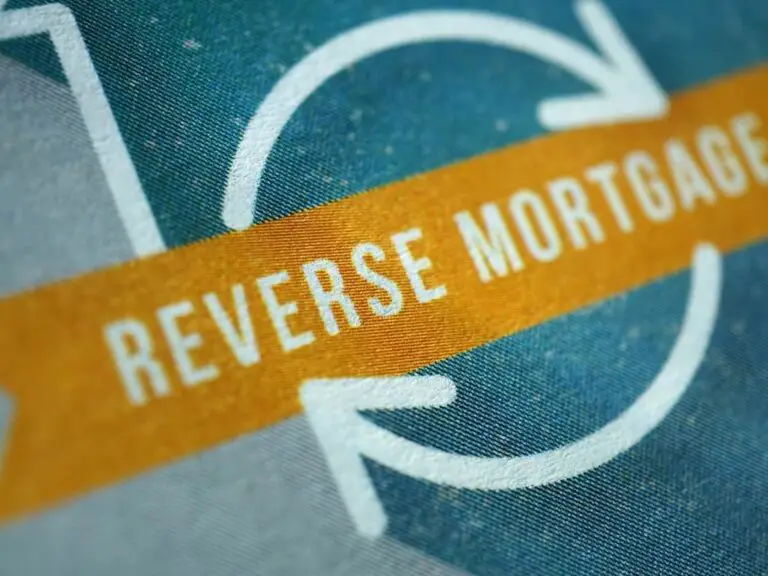Does Rental Income Count as Earned Income for Social Security?
Rental income is a significant source of income for many low-income seniors. Social Security benefits are based on the amount of earned income, so it is important to know if rental income counts as earned income.
So, does Rental Income count as Earned Income for Social Security?
No, rental income generally does not count as earned income for Social Security. The Social Security Administration only considers income from employment or self-employment towards the retirement earnings test. However, there are exceptions where rental income may be considered, such as if the income is received through trade or business as a real estate dealer, if the individual materially participates in the management or production of farm commodities on rented land, or if services are rendered primarily for the convenience of the occupant of the premises.

How Does Rental Income Count for Social Security?
Rental income does not typically count towards Social Security earnings. The U.S. Social Security Administration (SSA) considers only income from employment or self-employment for the retirement earnings test, which can affect the benefits a person receives before reaching full retirement age. Therefore, income from various sources such as rental properties, pensions, lawsuit payments, inheritances, investment dividends, distributions from Individual Retirement Accounts (IRAs), and interest do not usually affect Social Security benefits.
However, there are exceptions where rental income might be considered for Social Security purposes. This occurs when:
- The rental income is received in the course of a person’s trade or business as a real estate dealer.
- Services are rendered primarily for the convenience of the occupant of the premises.
- In the case of farm rental income, the person materially participates in the production or in the management of the production of farm commodities on land rented to someone else.
For instance, if a person operates a bed and breakfast or similar establishment and provides services such as room service, laundry service, meal preparation, or cleaning for the occupants, the income derived from these activities could be considered earnings for Social Security purposes.
In the year a beneficiary reaches full retirement age, a different formula is applied for the earnings test and the limit is higher. Once a beneficiary reaches full retirement age, the earnings test is no longer applicable and the income level does not affect Social Security benefits. The full retirement age varies depending on the year of birth, gradually rising from 66 and 4 months for those born in 1956 to 67 for those born in 1960 or later.
To summarize, rental income generally doesn’t count for Social Security unless it’s received in the course of a person’s trade or business as a real estate dealer, services are provided primarily for the convenience of the occupant, or if it involves material participation in farm commodity production on rented land.
What is the Definition of “Earned Income” for Social Security?
“Earned Income” for Social Security refers to income derived from an individual’s employment or self-employment. It includes wages, net earnings from self-employment, work-related bonuses, and awards. Social Security uses this income to calculate the amount of Social Security benefits an individual is eligible for, particularly in the case of those who have claimed benefits prior to reaching full retirement age.
In 2023, the Social Security Administration (SSA) withholds $1 in benefits for every $2 earned above the annual limit of $21,240 for individuals who claimed benefits before reaching full retirement age. The full retirement age is determined by the individual’s year of birth, ranging between 66 and 67 years.
It is important to note that the definition of “Earned Income” for Social Security does not include income from other sources such as rental properties, lawsuit payments, inheritances, pensions, investment dividends, IRA distributions, and interest. However, there are exceptions to this for certain types of rental income, such as income received through trade or business as a real estate dealer, income derived from services rendered primarily for the convenience of the occupant of a rental property, and in the case of farm rental income, if the individual materially participates in the production or management of the production of farm commodities on rented land.
Once an individual reaches full retirement age, the earnings test is no longer applicable, and income level does not affect Social Security benefits.
How Much Rent Must You Make to Qualify for Social Security?
There is no specific amount of rent required to qualify for Social Security. However, Social Security benefits are primarily based on your earnings from employment or self-employment, not rental income. The Social Security Administration (SSA) only considers income from employment towards the retirement earnings test. Other types of income, including rental income, lawsuit payments, inheritances, pensions, investment dividends, IRA distributions, and interest, do not affect the calculation of Social Security benefits.
The retirement earnings test involves a limit on the amount of money you can earn before your benefits are reduced. In 2023, the annual limit is $21,240 for people who claim benefits before reaching full retirement age, which is currently 66 and 4 months for those born in 1956 and 66 and 6 months for those born in 1957, gradually rising to 67. For every $2 earned above this limit, Social Security withholds $1 in benefits.
Rental income is generally not included in these calculations, unless it is received in the course of your trade or business as a real estate dealer, services are rendered primarily for the convenience of the occupant of the premises, or you materially participate in the production or management of the production of farm commodities on land rented to someone else.
Therefore, the amount of rent you make does not directly influence your qualification for Social Security. However, it’s crucial to understand the specific circumstances under which rental income could potentially affect your benefits, such as if you are a real estate dealer or if you provide certain services to your tenants. This ensures that you are fully aware of your benefits and any potential reductions.
If I Have Rental Income, Do I Pay Less in Taxes?
In terms of taxation, rental income is generally considered passive income and is therefore not subject to Social Security taxes. However, it is still subject to other forms of taxation. Rental income must be reported to the IRS and is generally included in your taxable income if you are not a real estate professional.
Tax deductions for rental properties can reduce your overall tax burden. These can include expenses incurred for maintaining and managing the property, such as repairs, utilities, insurance, property taxes, mortgage interest, and depreciation. The IRS allows landlords to subtract these costs from rental income, reducing the total amount of taxable income and potentially shifting the landlord into a lower tax bracket.
However, there are specific rules and limitations on what can be deducted and how much. For example, if you use the property for personal use for more than the greater of 14 days or 10% of the total days you rent it to others at a fair rental price, it is considered a personal residence and the rules for personal residences apply. This means you would have to allocate your expenses between the rental use and the personal use, and you may not be able to deduct rental expenses in excess of rental income.
The Tax Cuts and Jobs Act of 2017 introduced a new tax benefit for rental property owners in the form of a 20% deduction on qualified business income. This allows landlords to deduct up to 20% of their net rental income, or 2.5% of the initial cost of their property plus 25% of the amount they pay their employees. This deduction is phased out for taxpayers with taxable income exceeding $157,500 ($315,000 for joint returns).
In sum, while rental property owners are liable to pay taxes on their rental income, they can also avail of various tax deductions and benefits that can significantly reduce their tax liabilities. However, these benefits do not directly impact Social Security taxes as rental income is not considered earned income for the purposes of Social Security. As taxation laws can be complicated, consulting a tax advisor can be beneficial to fully understand and optimize the tax implications of rental income.
Frequently Asked Questions
-
How much can a 70 year old make while on Social Security?
Social security earnings limits are $1,630 per monthly or $19 5,560 per annum in 2022 for those who have not yet reached full retirement age. For every $2 you make above this limit, your Social Security benefits will be withheld $1.
-
Is $20000 a year poverty?
The government defines poverty as income divided by household size. Families of three people or more are considered to be impoverished if they have a household income below $20,000 The poverty line is $11,880 per person, $16,020 each for two.
-
What is my federal poverty line?
The current Federal Poverty Level (FPL). Thus, since $18,310 is the FPL for a couple in 2022, $18,310 would be enough to support a three-person family. A family of three will have $18,310 plus $4,720 equal $23,030. This applies only to states other than Hawaii and Alaska.
-
Does rental income count as earned income for Social Security?
Rent income from real property does not count towards Social Security unless you are a trader or businessperson who deals in real estate (see 1214-1215).
-
What is the elderly tax credit?
Credit for the Elderly and Disabled: A Glance
-
What is considered low income for seniors in the United States?
Low income seniors are those who make less than $30,000 a year. This accounts for 40% of senior citizens. Senior financial assistance includes aid with housing, nutrition and healthcare. The most popular programs are Medicare, Medicaid, SNAP and HUD public housing.
-
How much can a retired person earn without paying taxes in 2022?
This limit will apply to your 2022 earnings. It is $51,960. Your earnings are only taken into account up until the end of the month you retire. We do not take into consideration your entire earnings year.
-
Can you collect Social Security at 70 and still work?
You should be applying for Social Security benefits if you’re 70 years old or more. Even if you are still working, benefits can be received. Your benefits will not be increased if you wait beyond 70 years of age.
-
Will Social Security recipients get an extra $200 a month in 2022?
This increase is effective when Social Security beneficiaries start receiving benefits in January 2022. The December 30th, 2021 will see an increase in SSI payments. How long it takes for your notice to arrive at the mailbox: COLA notices are sent throughout December.
-
Is there a 4th stimulus check for Social Security recipients?
Congress has yet to address the question of another Social Security payment. The IRS has yet to be ordered to make a fourth payment, despite rumors.
-
What are tax benefits for senior citizens?
The 1961 Income Tax Act does not exempt senior citizens or extremely senior citizens from the filing of returns of income. The Finance Act 2021 has added a section 194P to help senior citizens who are over 75 and reduce compliance.
-
How much tax is taken out of your Social Security check?
For taxes, you can choose to have 7, 10, 12, or 22 percent withheld from your monthly benefits. These percentages cannot be withheld. Flat dollar amounts cannot be accepted. You must sign the form before you can return it by post or personally to your local Social Security Office.
-
What disqualifies Social Security?
Social security benefits are not available to anyone who hasn’t reported their income or evaded taxes over a lifetime.
-
Does money in the bank affect Social Security retirement?
Social Security does not consider pension payments, annuities or the interest and dividends you earn from savings and investments earnings.
-
Are seniors getting another stimulus check?
Although the Senior Citizens League has been pushing for $1.400 in stimulus payments for seniors, legislation has not been passed.






